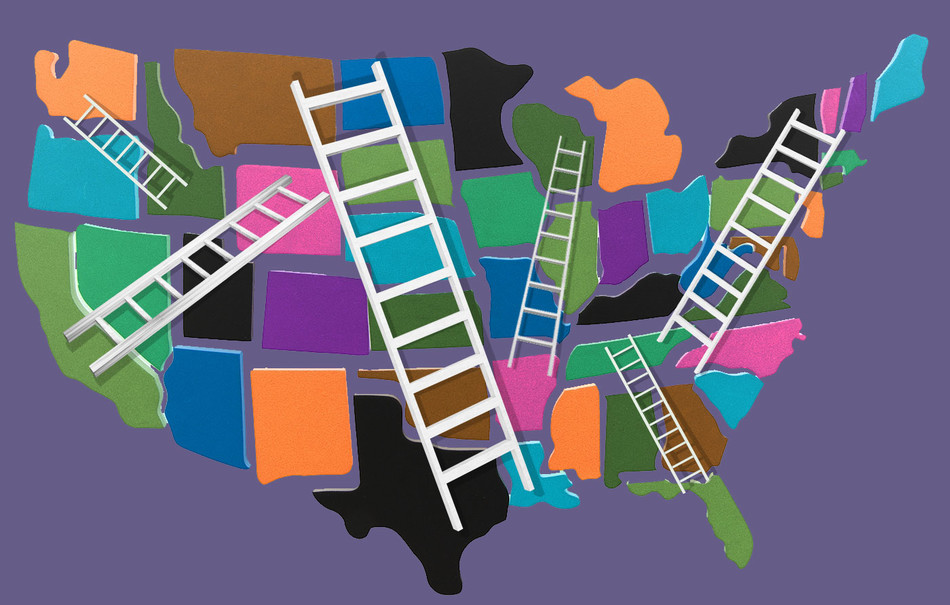What is the mission of Builders, and how are you trying to achieve your goals?
Builders aims to equip citizens to overcome a toxic “us versus them” culture and replace it with a problem-solving mindset. One of the ways we do that is through civic activation. Our flagship program, Citizen Solutions, convenes people in individual states to create common-ground solutions to divisive issues across lines of difference. After inviting public feedback, the participants mobilize support and push lawmakers for legislation. So far, we’ve focused on gun rights and safety in Tennessee, and abortion access and family wellbeing in Wisconsin.
A big part of our work is demonstrating what effective conflict-resolution looks like, and we do this through media. People spend most of their time on screens, so we try to reach them with creative content and storytelling via social media, film, and other formats. We recently produced a documentary about the Citizens Solutions project, called The Tennessee 11, which was screened at the Nashville Film Festival and International Black Film Festival.
Lastly, we focus on education. We’re in the process of expanding our Builders Toolkit, which is a collection of original and curated course materials for K-12 schools, higher education, and workplaces. The goal isn’t to tell people what to think, but to teach constructive conflict, critical thinking, and media literacy. Peter T. Coleman ’97TC, the renowned conflict-resolution scholar at Columbia, has been one of our partners in this initiative.
What inspired you to get into this type of work?
I grew up in Queens, which is a melting pot of personalities, ideologies, religions, and nationalities, and I was a Jewish kid in a Catholic high school. Getting along with people and coexisting across lines of difference was baked into my upbringing.
Later, I started a career in social-media marketing as the technology was just becoming professionalized. I saw how platforms that enable communities of like-minded people to find each other, connect, and converse across long distances can also become vectors for mob mentalities, group think, and disinformation. This is a cliché, but once I got into my late thirties and forties, I started to think: what kind of world am I leaving for my three kids? How can I harness some of the skills I picked up in the for-profit space to shape the world for the better?
What role does the media play in promoting polarization, especially during an election year?
News and social-media companies are incentivized to attract viewers and clicks, so they frequently amplify outrage and misinformation. As a result of that phenomenon and the structural challenges within our primary system, some politicians end up pandering to the fringier elements of their bases. Outrage has always driven politics, but our technological environment has made the situation worse.
That said, Builders is much more concerned with the accountability and agency of individual citizens than pointing fingers at the media. This election season, I would urge all citizens — left, right, middle, or otherwise — to think about the values and performance metrics of our elected leaders. These are people who citizens effectively hire and pay, and they should be held accountable and evaluated based on their job efficacy. We should be assessing their policies and legislation and how they’re improving material conditions, but also the degree to which they don’t engage in dehumanization, disrespect, and personal attacks.
Builders just launched a new tool, called the Builders Power Rankings, that uses AI and machine learning to rate federal congress members on policy and constructive debate. We give each person a composite score that informs weekly rankings backed by data and an expert panel, similar to power rankings in football. The scores are meant to be debatable, not definitive. Our hope is to provide information that’s interesting, quantitative, culturally relevant, and easily digestible for people as they consider the performance of our elected leaders.
Many people are perfectly content in their ideological bubbles. Why is it important to break out?
Political, societal, technological, economic, and environmental issues affect us all, regardless of our bubbles. If we’re going to have any chance of addressing these immense and possibly existential challenges, we need to rebuild the problem-solving muscles that might have atrophied in our digital lives. Studies have shown that the most creative and innovative solutions come from groups that are demographically, economically, and ideologically diverse. We especially need durable solutions that don’t just get changed by executive orders as presidential administrations flow in and out. This requires the hard work of persuasion and negotiation — the things that democracy has always required of us.
We’re in the thick of a presidential election season, and the holidays are also coming up. Do you have any suggestions for dealing with family and friends on opposite sides of the political divide?
Tips of that sort have become almost a cottage industry, which I think is a good sign. It shows there’s a market for people who want to at least have civil interactions or, even better, deep engagement and hearty debate that remains respectful. One of the biggest things I’ve learned is to not go into a holiday gathering with the intention of changing anybody’s mind. That’s highly unlikely to happen. But the ability to understand where someone is coming from and how their experiences affect their views — and to convey the same about ourselves — creates an environment for connection. To move beyond that is usually going to take more than a single dinner.
Is it better to avoid divisive topics at family gatherings altogether?
Sometimes, yes. One of the things about our work is that not everybody has to do it all the time. It’s much more important to be effective than to be a zealot. We’ve learned from social science that it’s actually more productive to debate with your political in-group than with your out-group. Arguing over the fence, whether digitally or in person, creates a sense of threat to our identities and we tend to defensively entrench even further. But when we engage in the relative safety of interrogating our beliefs with people who have similar views, we’re more likely to evolve our thinking and show compassion to folks with different ideas and experiences.
In some circles, it’s become accepted or even encouraged to stop speaking to family members over political differences. Does that approach have any value?
It’s hard to make a blanket statement. The way any of us approach this work is very personal, and stretching outside one’s comfort zone can look different for different people. Sometimes it’s not the right time to talk to a particular person in your life, and you shouldn’t put yourself in harmful or hateful situations. But generally, starting from a point of “there’s nobody not worth talking to” is a positive place to be.
Some people think polarization is so bad that the United States is on the brink of civil war. Do you think there’s hope?
As somebody who is focused pretty much 24/7 on trying to tackle this challenge, I can tell you that there’s real momentum for what we’re building. You wouldn’t know from looking at the stories dominating our feeds or on cable news, but Builders continues to prove every day with a digital following of nearly four million people that there is an appetite for constructive problem solving and finding common ground. Most people, even if they have really different ideas about policy and tactics, have similar values and don’t want to cause trouble and sow division. The question is, can we band together and galvanize that common ground into a movement? The first step is articulating the message, the second is demonstrating it, and the third is empowering people to practice it.




